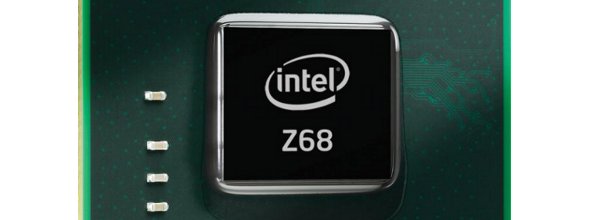Intel Z68 motherboards out now: offer support for Sandy Bridge's built in GPU

What do you mean you haven't got a brand new Sandy Bridge processor yet? Intel's second gen Core processors are pretty much the only choice for building or upgrading a gaming system right now. As if to prove the superiority of its chip du jour, the big I has just launched another motherboard chipset to support it: the Z68 Express.
Aimed at high performance machines, the first wave of Z68 boards from ASUS , MSI and Gigabyte are around the same price as the outgoing P67 chipset. And there are a lot of other similarities between the two. For example, there's the Z68 gives you full access to overclocking controls in the BIOS, with switches that aren't available on the most keenly priced H67 and H61 boards, even if you have an unlocked CPU.
The biggest thing that Z68 has which P67 doesn't is support for the built-in GPU that Sandy Bridge has on its die. While this isn't such a big deal in terms of gaming performance - if you're spending this much on a machine you don't want to play with integrated graphics - but it does open up the QuickSync video encoding engine for crunching HD movies. In most tests this has been obliterating the performance of GPU-accelerated video encoding, but if you dropped a Core i7 or Core i5 into a P67 motherboard, QuickSync was frustratingly disabled. Thanks to the inclusion of Lucidlogix' Virtu tech on the Z68, you can switch between integrated or discrete graphics, and use QuickSync all the time.
For in game performance, though, the thing we'll be looking most closely at is the new Smart Response Technology (SRT). A lot of you have told us recently that you've been adding solid state drives (SSDs) to your PCs and getting good results for accelerating boot times, loading speeds and multitasking performance. The problem with SSDs is that they tend to be very small, less than 128GB, so you can't put many apps on them. SRT overcomes this, by creating one big virtual drive out of your traditional disk and an SSD, and intelligently moving commonly used files onto the faster flash memory of the SSD.
I'll be putting together an X68 system over the next few days and testing it for next month's hardware reviews in the mag, but early reviews are online now if you can't wait. I'll report back on the blog to let you know how I get on with SRT specifically.
X68 looks to have been well received so far, but if there's a problem I spy already it's that it brings the total number of motherboard chipsets which now take the 1155 pin Core processors to four, a launch rate of nearly one a month. Most manufacturers offering two or three individual models based on each of the H61, H67 and P67 platforms, while Gigabyte alone has nine different variations of Z68 already, with two more planned this year.
Some might argue that there's a little too much choice out there. Things could be a little confusing for the even moderately well informed buyer.
Keep up to date with the most important stories and the best deals, as picked by the PC Gamer team.
At least it's a change from January, when there were no motherboards at all for the plucky little to latch onto.?

